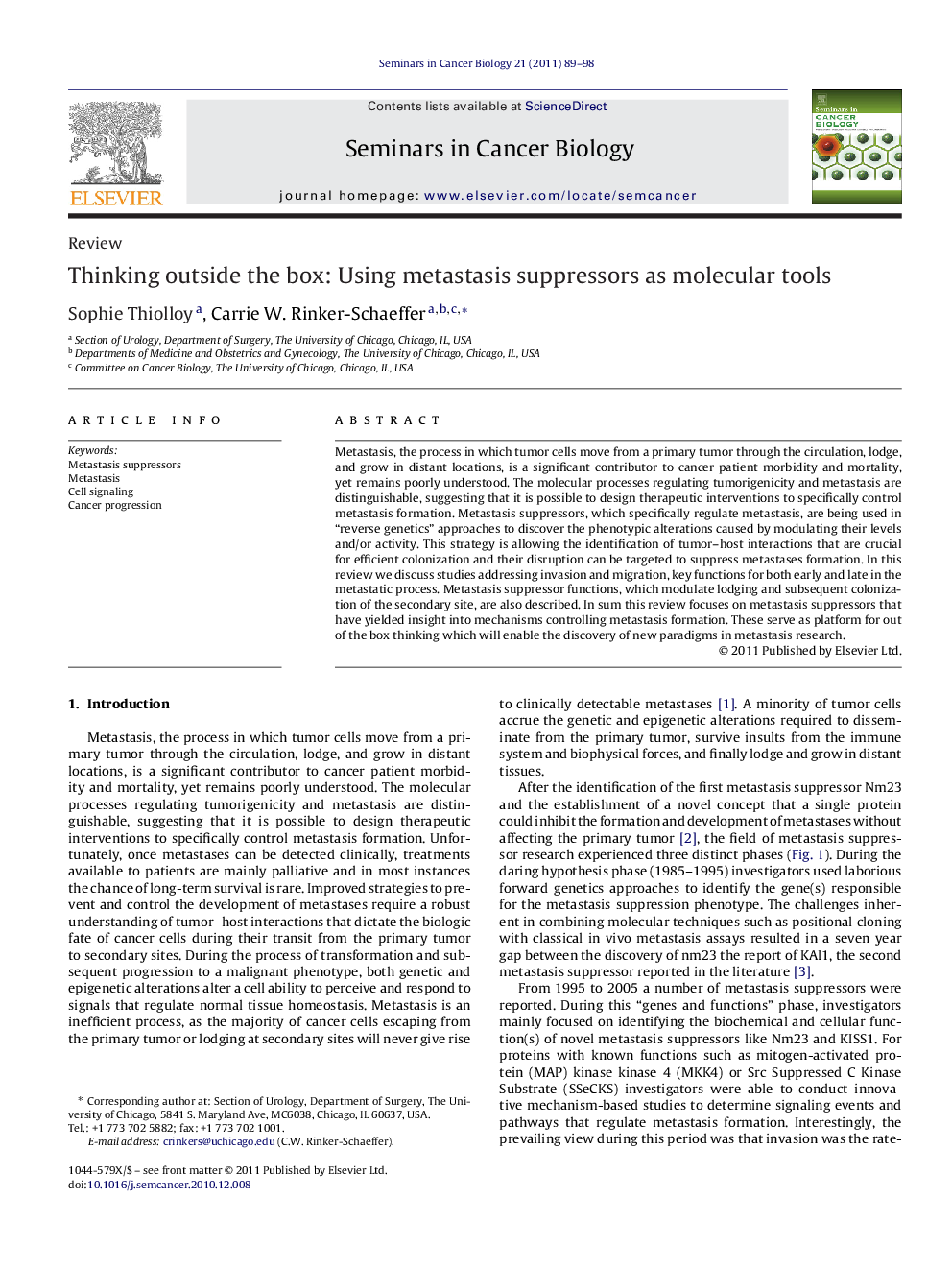| Article ID | Journal | Published Year | Pages | File Type |
|---|---|---|---|---|
| 2023822 | Seminars in Cancer Biology | 2011 | 10 Pages |
Metastasis, the process in which tumor cells move from a primary tumor through the circulation, lodge, and grow in distant locations, is a significant contributor to cancer patient morbidity and mortality, yet remains poorly understood. The molecular processes regulating tumorigenicity and metastasis are distinguishable, suggesting that it is possible to design therapeutic interventions to specifically control metastasis formation. Metastasis suppressors, which specifically regulate metastasis, are being used in “reverse genetics” approaches to discover the phenotypic alterations caused by modulating their levels and/or activity. This strategy is allowing the identification of tumor–host interactions that are crucial for efficient colonization and their disruption can be targeted to suppress metastases formation. In this review we discuss studies addressing invasion and migration, key functions for both early and late in the metastatic process. Metastasis suppressor functions, which modulate lodging and subsequent colonization of the secondary site, are also described. In sum this review focuses on metastasis suppressors that have yielded insight into mechanisms controlling metastasis formation. These serve as platform for out of the box thinking which will enable the discovery of new paradigms in metastasis research.
